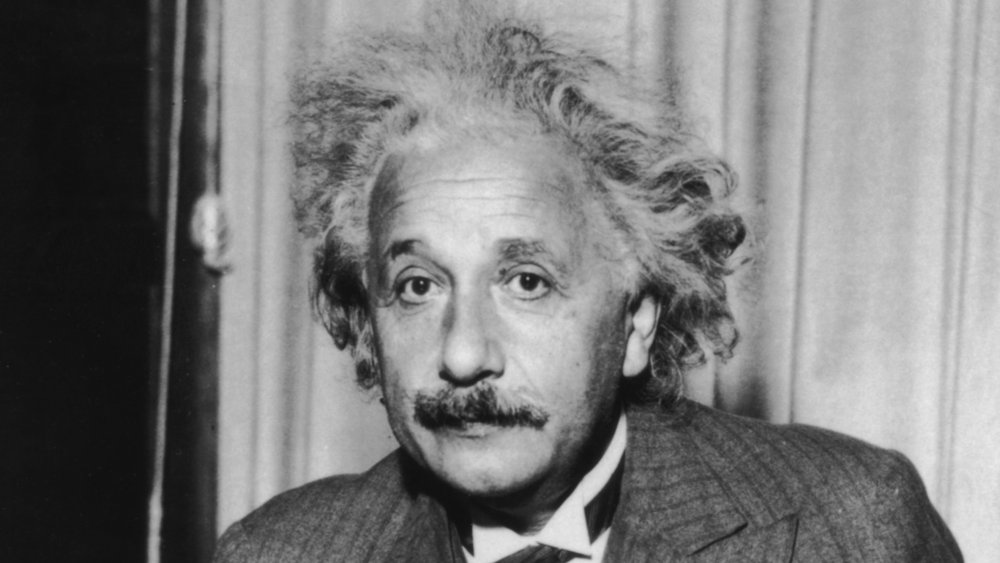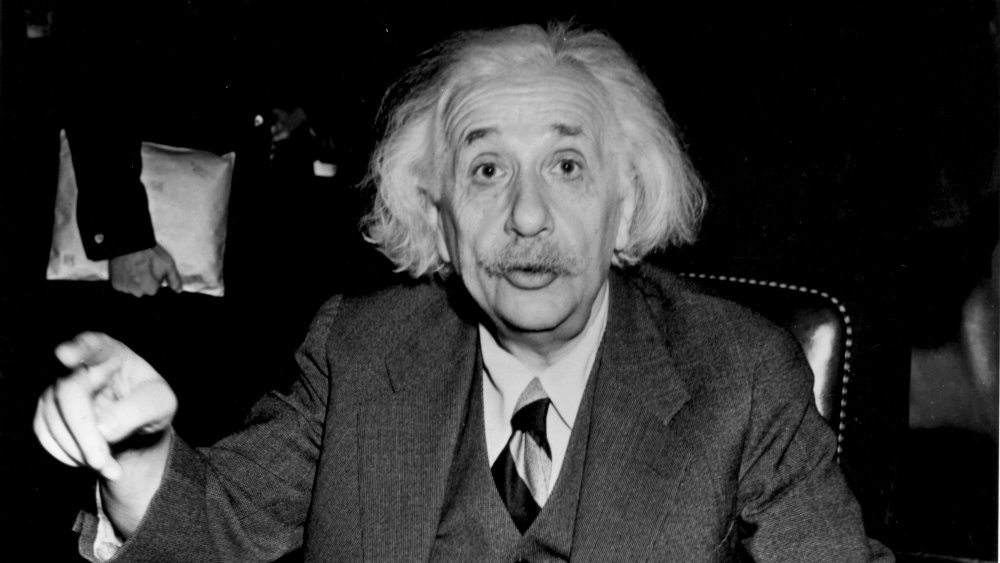Why Albert Einstein Turned Down The Presidency Of Israel
Albert Einstein is arguably the most famous scientist of all time. The German-born theoretical physicist may have died all the way back in 1955, but he remains so popular that Einstein-themed licensed products continue to make a fortune. Of course, the man who came up with the theory of relativity was pretty respected in his own time, as well. Sure, Einstein wasn't without his controversies. He was capable of being a pretty terrible person in private. The FBI spied on him to the tune of an 1,800-page dossier, because J. Edgar Hoover felt that the Nobel-winning genius liked civil rights and leftist politics a bit too much.
Nevertheless, Einstein thrived. So much, in fact, that a country once wanted to make him its president, simply for being Albert Einstein. The country in question was the newly-founded Israel, and when their first president, Chaim Weizman, died in 1952, the country promptly reached out to the Jewish Einstein and offered him the presidency. Unfortunately for them, however, the science legend wasn't interested. Here's why Albert Einstein turned down the presidency of Israel.
Albert Einstein was a man who knew his limits
Sure, "let's ask Albert Einstein to be the president" is the kind of thought that sounds just amazing at first. Besides, the people of Israel did hold him in extremely high regard, to the point that they considered him "the greatest Jew alive." Einstein, however, wasn't a genius for nothing, and as Evan Andrews of History tells us, he was able to deftly deduce that his success in this particular job would be limited, to say the least.
Weirdly, the fact that the theoretical physicist was already 73 years old at the time didn't play a part in his declining the honor, or at least he didn't state it as the reason. Instead, the letter he sent to an Israeli ambassador plainly stated that he couldn't handle the social and ceremonial aspects of presidency. "All my life I have dealt with objective matters," the Nobel laureate wrote. "Hence I lack both the natural aptitude and the experience to deal properly with people and to exercise official function."

